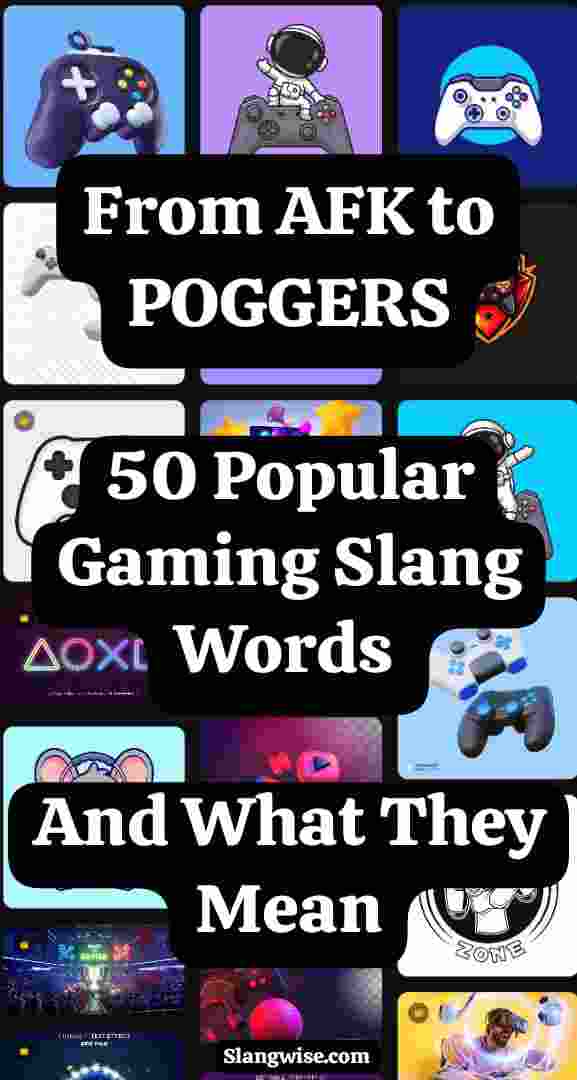If you play games or watch streams, you’ve likely heard unique terms that can be confusing at first. Gaming slang helps players communicate quickly and bond over shared experiences.
Over the years, I’ve noticed how gaming slangs can bring people together, creating a sense of belonging and camaraderie among gamers.
They can also be a source of confusion and frustration for newcomers, who may struggle to keep up with the latest lingo.
In this blog post, I’ll be sharing my expertise and knowledge with you, as we delve into the 50 most popular gaming slangs of all time.
From classic terms like “noob” and “pwned” to modern phrases like “tilt” and “smurf,” we’ll explore the origins, meanings, and usage of each slang term.
Whether you’re a seasoned gamer or just starting out, this comprehensive guide is designed to help you navigate the complex and ever-evolving world of gaming slangs.
So, let’s get started and dive into the fascinating language of gaming!
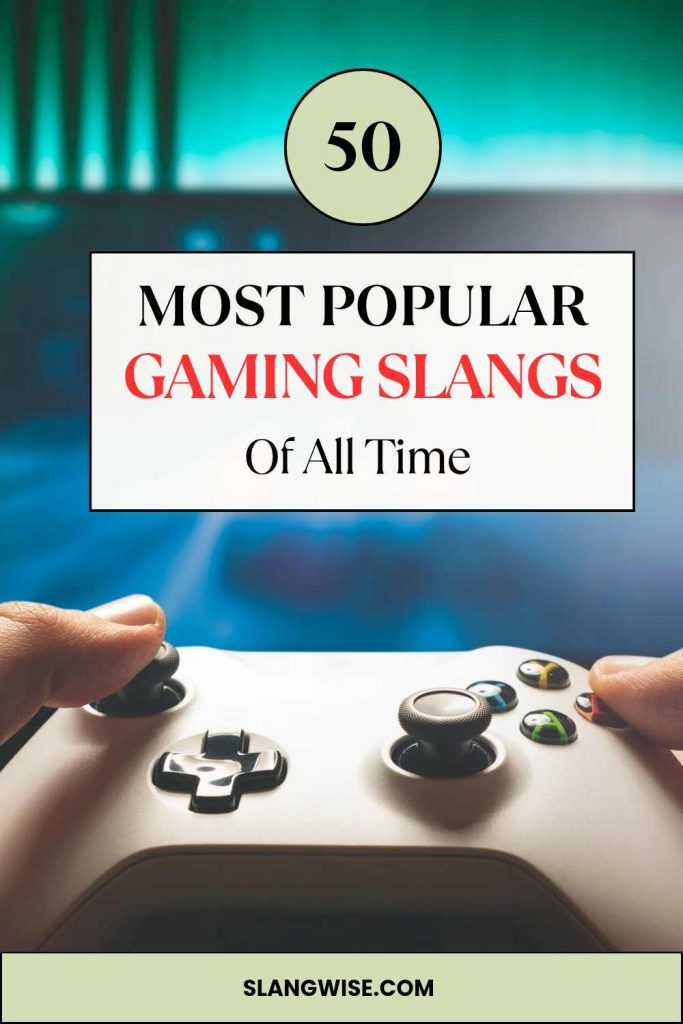
Table of Contents
50 most popular gaming slangs of all time
1. AFK (Away From Keyboard)
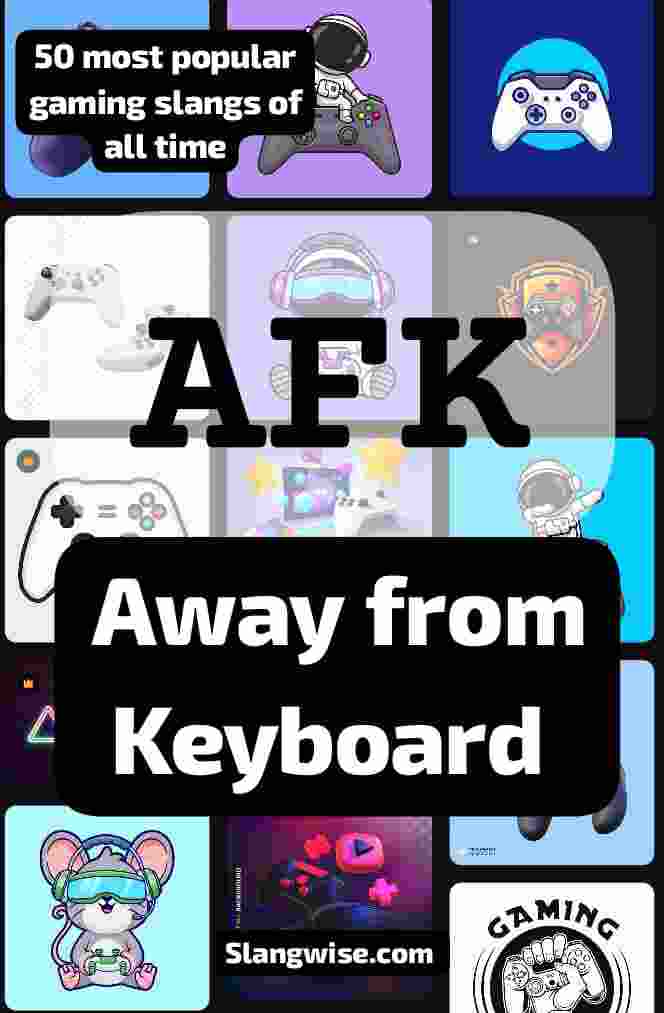
When a player steps away from the game temporarily, they’ll often announce “AFK” to avoid leaving teammates in the dark. This term is crucial in team-based games like Valorant or Overwatch, where coordination matters.
Forgetting to signal AFK can lead to frustration, especially during ranked matches.
2. GG (Good Game)
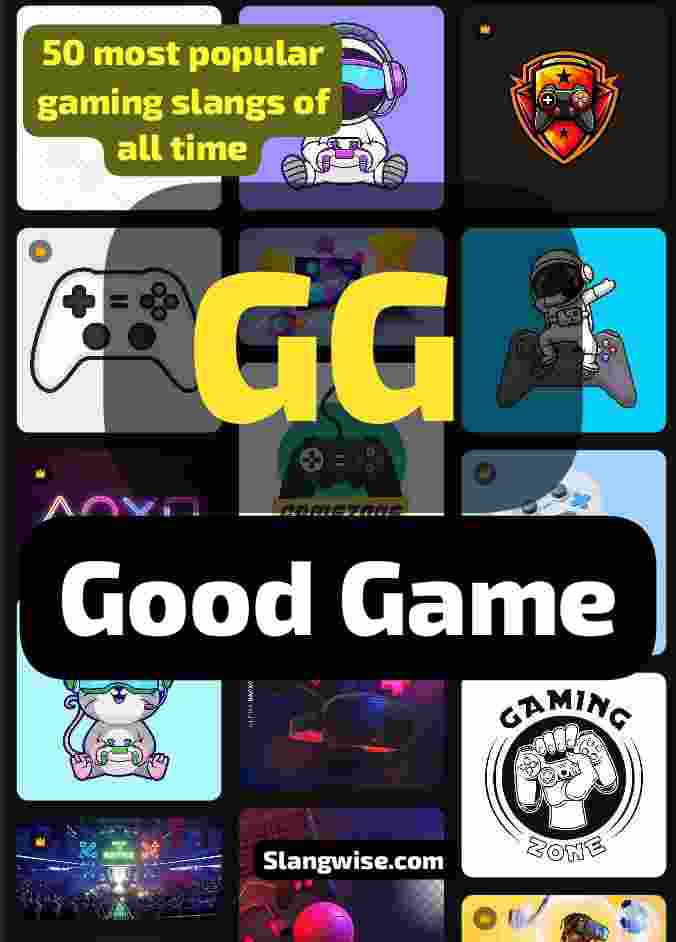
Short for “good game,” GG is a sportsmanlike way to acknowledge the end of a match. Originating in early online games like StarCraft, it’s now a universal sign of respect.
While it’s polite to say GG win or lose, spamming it mid-game is seen as cocky or rude.
3. Noob
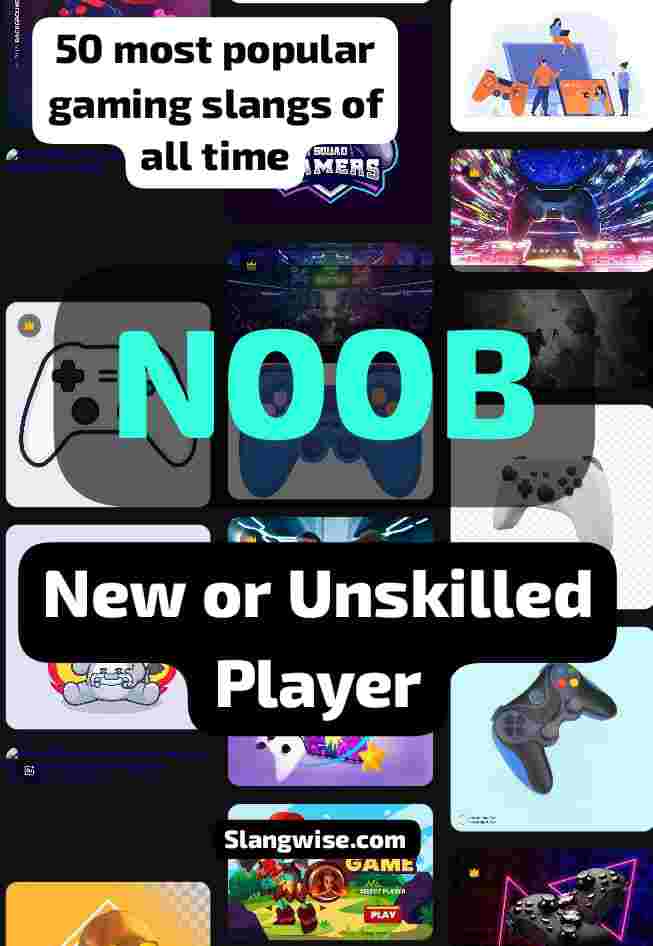
A term for a new or unskilled player, “noob” walks the line between playful teasing and outright insult. It’s often used among friends (“Relax, we were all noobs once”) but can turn toxic in competitive lobbies.
The variant “newb” refers to a well-meaning beginner, while “noob” implies a lack of effort to improve.
4. Pwned
This misspelling of “owned” became a meme in early 2000s gaming forums. To “pwn” someone means to dominate them embarrassingly, like winning a 1v5 fight in CS:GO. It’s a staple of trash talk, often paired with humor or sarcasm.
5. Ragequit
Quitting a game in frustration, usually after a losing streak or toxic encounter, is a ragequit. Common in competitive titles like League of Legends, it’s a reminder to take breaks when tilt sets in. Some games penalize ragequitting with temporary bans.
6. Camping
Campers hide in one spot, ambushing enemies who wander by. While effective in games like Call of Duty, it’s widely hated as a “cheap” tactic.
Countering campers requires teamwork, like flushing them out with grenades or flanking.
7. Buff/Nerf
Developers “buff” characters or weapons to make them stronger and “nerf” them to restore balance. Patch notes in games like Apex Legends often spark debates: “They nerfed my main into the ground!”
8. DLC (Downloadable Content)
DLC adds new maps, skins, or storylines to a game. While some DLC is free, premium content (like The Witcher 3’s expansions) can deepen gameplay.
Critics argue that “pay-to-win” DLCs (e.g., in EA Sports FC) harm fairness.
9. Griefing
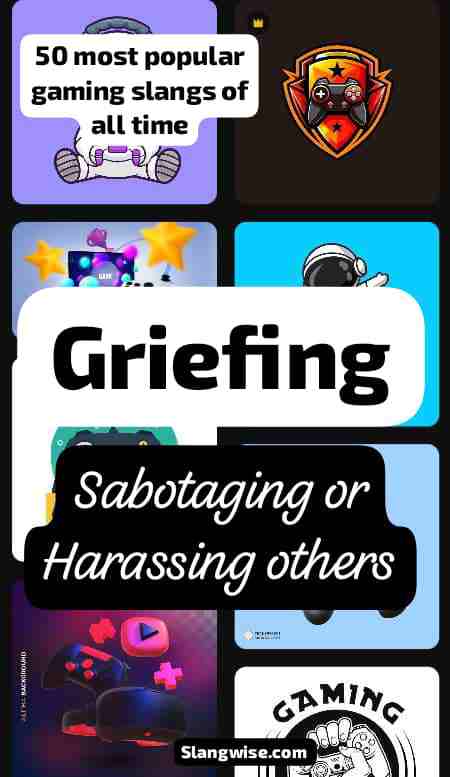
Griefers sabotage their own team or harass others for fun. Examples include blocking paths in Minecraft or team-killing in Rainbow Six Siege. Most games have reporting systems to curb this behavior.
10. GLHF (Good Luck, Have Fun)
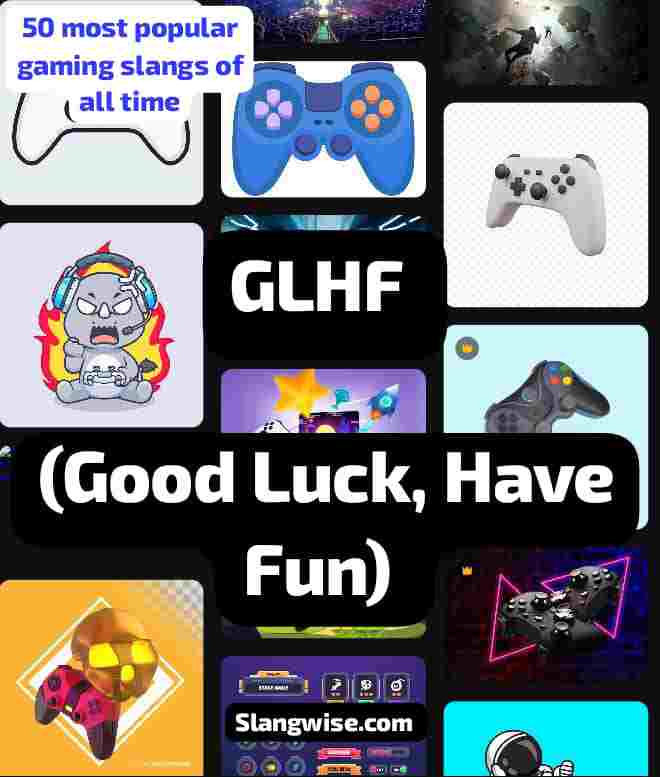
A pre-match greeting in games like StarCraft or Rocket League, GLHF sets a positive tone. Responding with “GH” (Good Hunt) in World of Warcraft or “You too!” keeps the vibe friendly.
Read Also: 35 Unique Military Slang Words Every Civilian Should Know
11. Gank
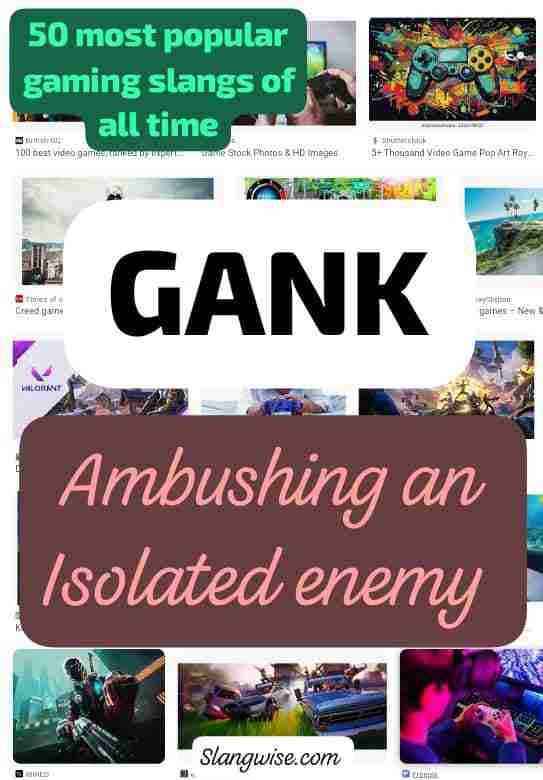
Ganking is ambushing an isolated enemy, often with teammates. In MOBAs like Dota 2, successful ganks require map awareness and timing: “Jungler, gank top lane, they’re overextended!”
12. Clutch
Pulling off a “clutch” means winning against impossible odds, like a 1v5 in Valorant. Pro players like Shroud are celebrated for clutch plays, which often involve quick thinking and precision.
13. XP (Experience Points)
Earned by completing tasks, XP helps players level up characters or unlock skills. Grinding XP in RPGs like Diablo IV can be tedious but is essential for accessing endgame content.
14. Meta
The “meta” refers to the most effective strategies or characters in a game’s current version. For example, the “double shield” meta dominated Overwatch in 2020. Ignoring the meta in ranked play can lead to losses.
15. Kill Steal (KS)
Stealing the final hit on an enemy you didn’t weaken is a kill steal. While frustrating, some games (like League of Legends) reward assists, making KS less of an issue.
16. Troll
Trolls provoke others for laughs, like intentionally failing objectives in Among Us. While light trolling can be funny, persistent trolls ruin matches and often get reported.
17. Lag
Lag, delays caused by poor internet, can make games unplayable. High ping in Fortnite might mean your shots don’t register, leading to salty “I totally hit them!” moments.
18. Respawn
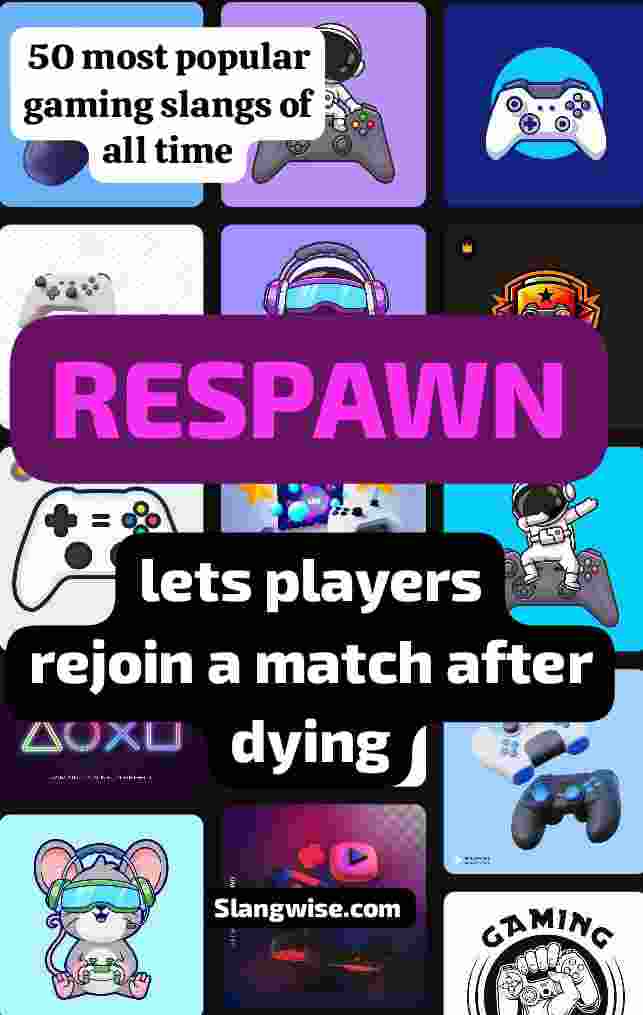
Respawning lets players rejoin a match after dying. Games like Call of Duty offer quick respawns, while PUBG’s battle royale mode has no respawns, raising the stakes.
19. Sweaty
A “sweaty” player tries way too hard, even in casual matches. Think slide-canceling in Warzone pub lobbies. The term pokes fun at over-competitiveness: “Chill, it’s just unranked!”
20. Endgame
Endgame content, like raids in Destiny 2, challenges players who’ve completed the main story. It often requires max-level gear and coordinated teams.
Read Also: 75 Ultimate Gen Alpha slang words of 2025
21. Farming
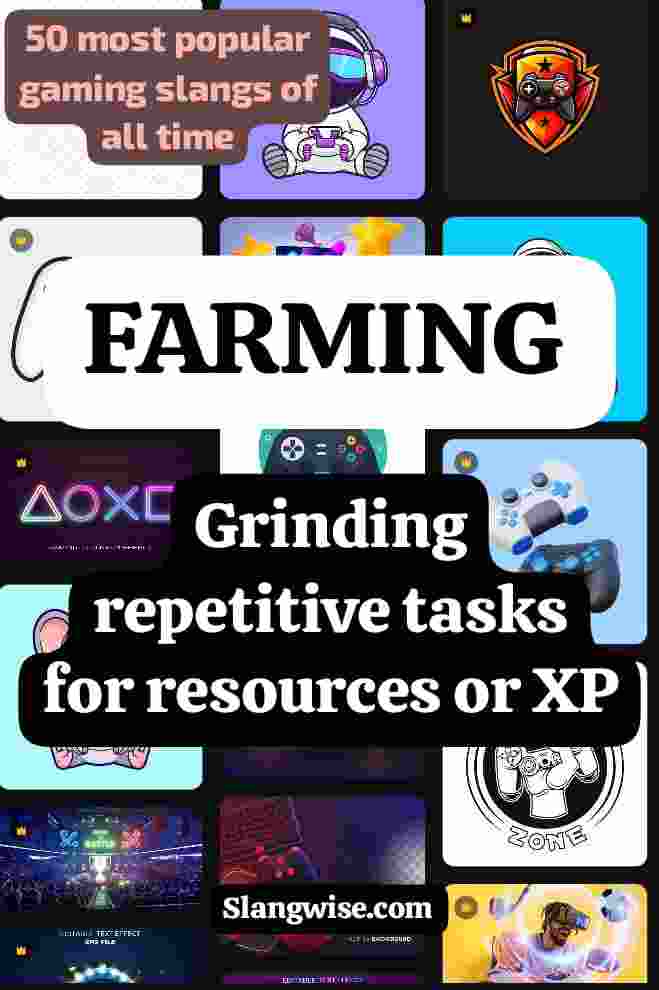
Farming means grinding repetitive tasks for resources or XP. In Old School RuneScape, players farm gold for hours; in Genshin Impact, they farm artifacts for ideal stats.
22. Cheesing
Cheesing uses cheap tactics to win easily, like spamming low-skill moves in Street Fighter. While effective, it’s frowned on: “Stop cheesing and fight fair!”
23. Skin
Skins are cosmetic upgrades, like Fortnite’s flashy outfits. They don’t affect gameplay but let players flex their style, or their wallet.
24. Snipe
Sniping involves landing long-range kills, a key skill in Halo or Battlefield. Skilled snipers can shift a match’s momentum with well-timed headshots.
25. Mains
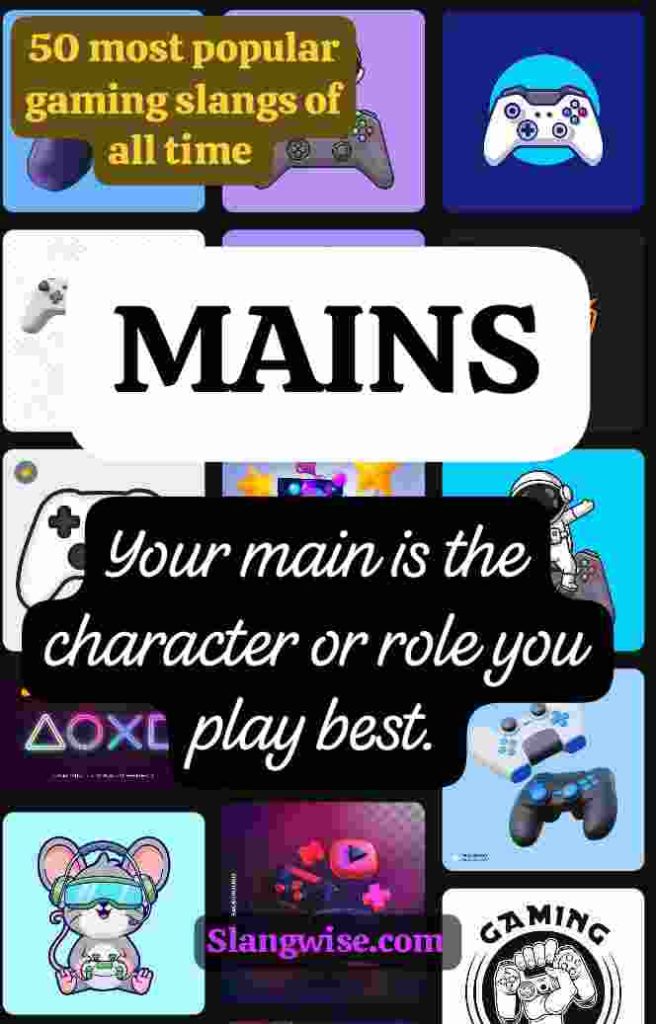
Your “main” is the character or role you play best. Apex Legends mains often specialize in one legend’s abilities, like Wraith’s portals or Gibraltar’s shield.
26. Loot Box
Loot boxes offer random rewards, from cosmetics to power-ups. Controversy over their similarity to gambling led some countries to regulate them.
27. Feeder
A feeder repeatedly dies, giving the enemy team an advantage. In MOBAs like League of Legends, feeders can single-handedly lose matches.
28. PUG (Pick-Up Group)
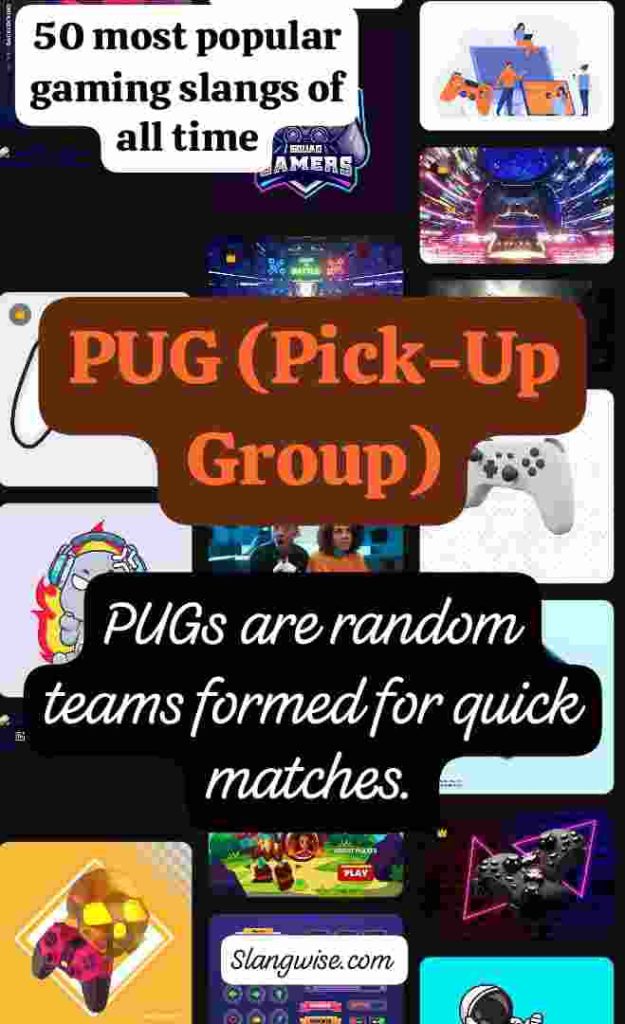
PUGs are random teams formed for quick matches. They’re hit-or-miss, sometimes you get pros, sometimes trolls.
29. Spawn Camping
Spawn campers kill enemies the moment they respawn. While valid in survival games like Rust, it’s despised in shooters like Halo.
30. GG EZ
A boastful “GG EZ” mocks opponents after an easy win. Many consider it toxic, and games like Overwatch auto-censor it to “I’m wrestling with some insecurity issues…”
31. Git Gud
“Git gud” (get good) taunts players to improve. Born from Dark Souls’ difficulty, it’s both a meme and a genuine tip: “Stop complaining and git gud.”
32. Scrub
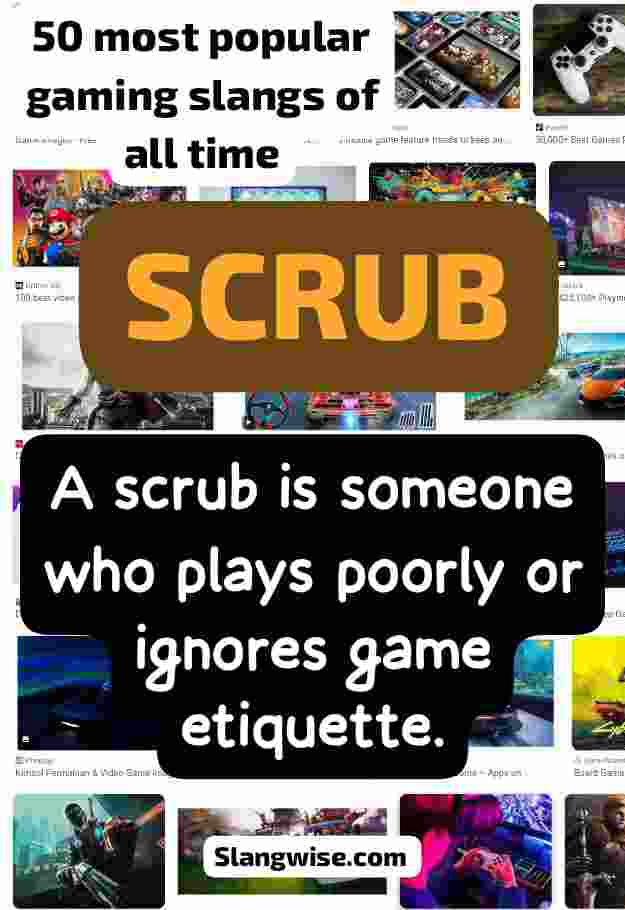
A scrub is someone who plays poorly or ignores game etiquette. Unlike “noob,” scrub implies willful ignorance: “That scrub won’t stop using broken combos.”
33. Throw Shade
Throwing shade means subtly insulting someone. In gaming, it might sound like, “Nice aim… if you’re playing blindfolded.”
34. Tryhard
Tryhards play overly aggressively, even in casual modes. The term mocks their lack of chill: “Who brings a meta loadout to a meme match?”
35. Toxic
Toxic players spread negativity through insults or sabotage. Games like Rocket League let you mute toxic teammates to preserve your sanity.
36. Aggro
“Aggro” refers to drawing enemy attention. Tanks in MMOs like World of Warcraft hold aggro to protect healers and DPS players.
37. Bait
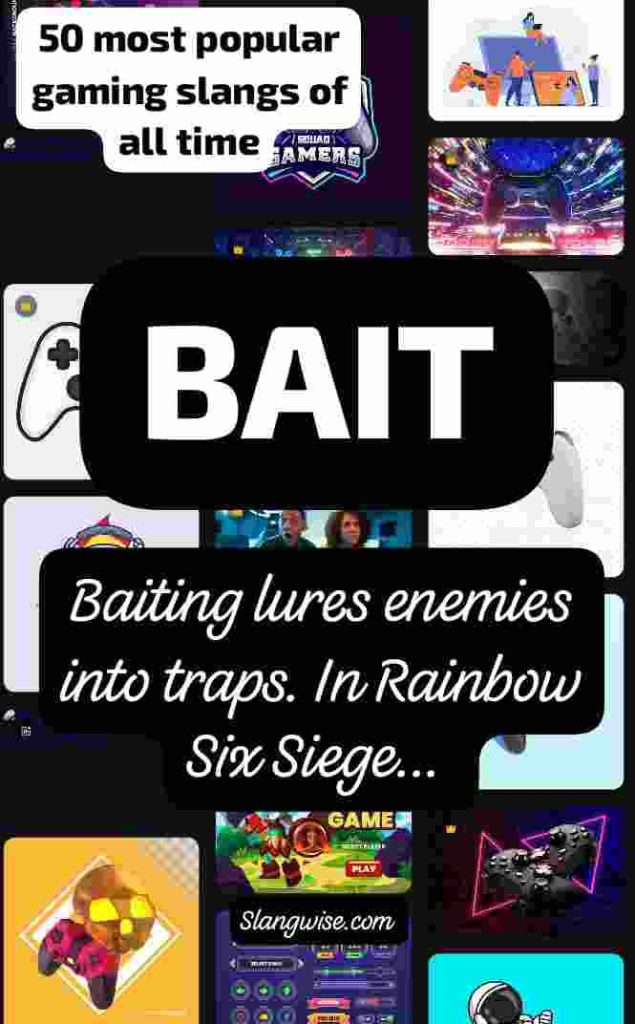
Baiting lures enemies into traps. In Rainbow Six Siege, a teammate might bait opponents into a crossfire: “Bait them to the hallway!”
38. Wipe
A wipe is when a team gets eliminated. Raids in Destiny 2 often end in wipes until players master mechanics.
39. Squeaker
Squeakers are young players with high-pitched voices. While mocked, many pros (like Fortnite’s Mongraal) started as squeakers.
40. Loot Goblin
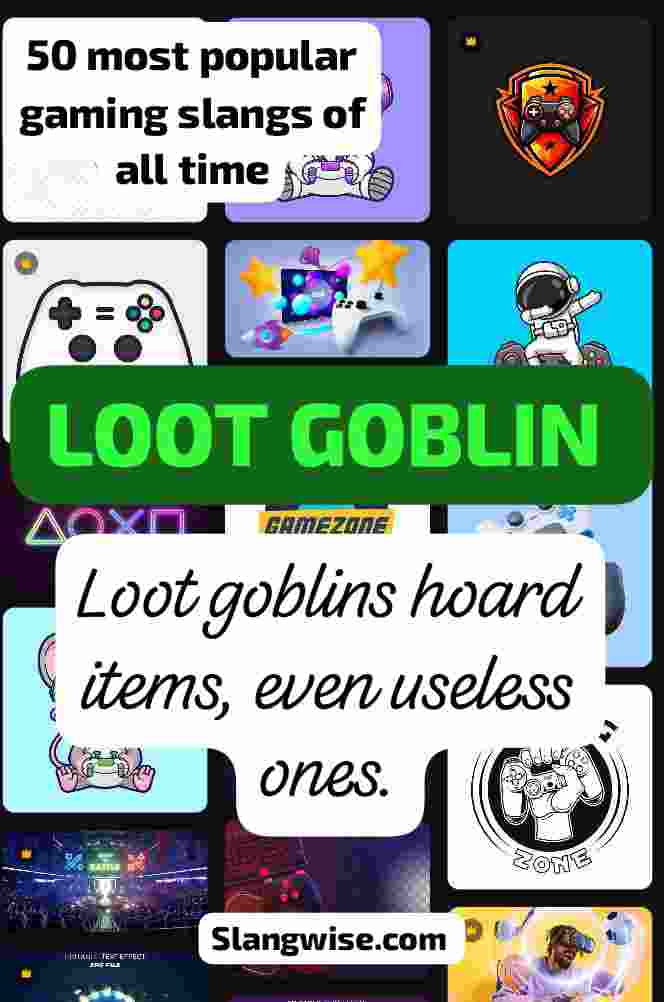
Loot goblins hoard items, even useless ones. In Borderlands, they’ll snatch legendaries mid-fight, sparking squad drama.
41. Kiting
Kiting means attacking while retreating to avoid damage. MMO bosses often require kiting to survive deadly attacks.
42. Zoning
Zoning controls map areas to limit enemy movement. In Smite, supports zone foes away from objectives like the Fire Giant.
43. HP (Hit Points)
HP measures a character’s health. Games like The Legend of Zelda display HP visibly, while others hide it for realism.
44. Simp
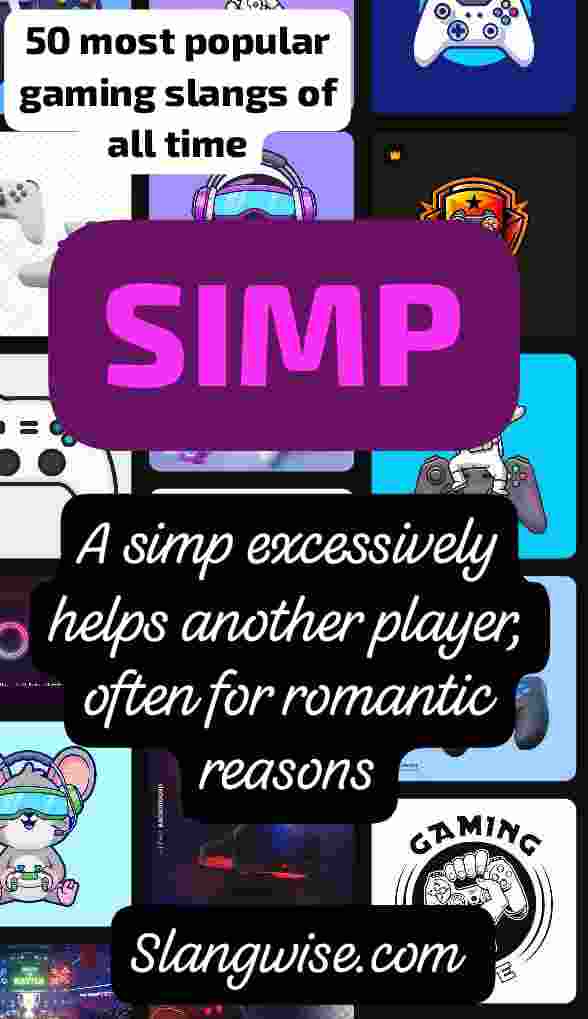
In gaming, a simp excessively helps another player, often for romantic reasons. The term is used jokingly: “Stop simping for the healer!”
45. RNG (Random Number Generator)
RNG determines luck-based outcomes, like loot drops in Diablo or critical misses in XCOM. Gamers love or hate RNG: “Thanks, RNGesus!”
46. Boosting
Boosting helps players rank up unfairly, either via smurf accounts or paid services. It’s banned in most competitive games.
47. OP (Overpowered)
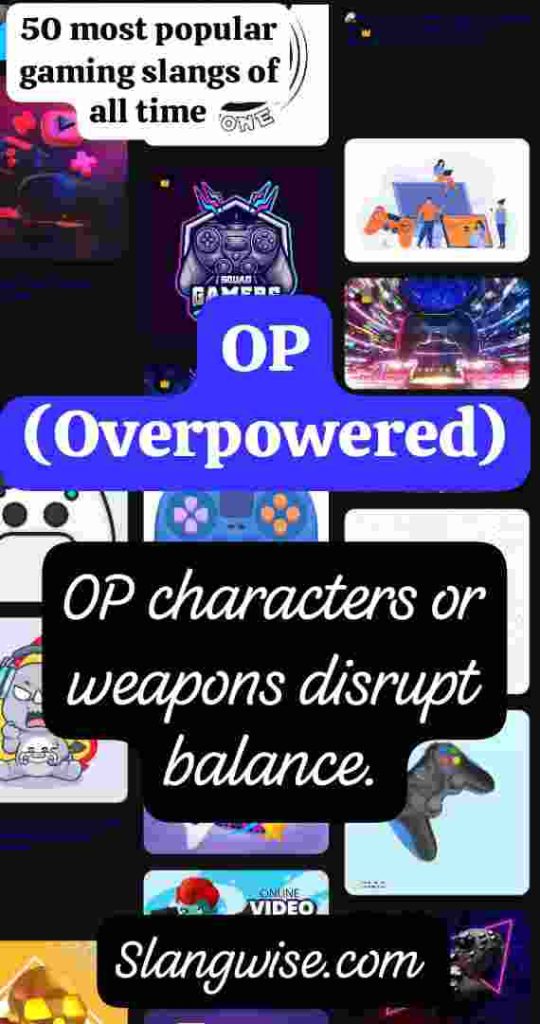
OP characters or weapons disrupt balance. Patches often nerf OP picks: “That new hero is so OP, delete them!”
48. Bots
Bots are AI enemies or clueless players. In PUBG, bot lobbies help newcomers practice before facing real opponents.
49. Tilted
Tilted players perform worse due to frustration. Pros manage tilt with breaks or coaching, key in high-stakes esports.
50. POGGERS
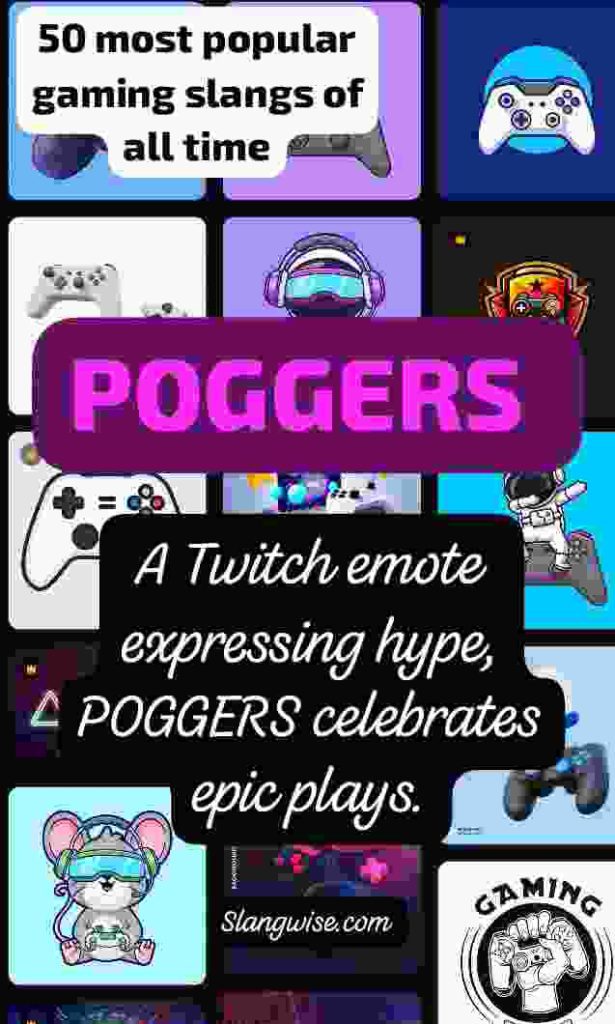
A Twitch emote expressing hype, POGGERS celebrates epic plays. It’s transcended streaming to become general slang: “That clutch was POGGERS!”
The Evolution of Gaming Slang
Gaming slang reflects broader cultural shifts:
- Streaming Influence: Terms like “poggers” (from Twitch emotes) spread via platforms.
- Cross-Genre Adoption: “Kiting” (from MMOs) is now used in Apex Legends.
- Mainstream Impact: “IRL” (In Real Life) and “FOMO” (Fear of Missing Out) originated in gaming.
Using Slang Responsibly
- Avoid Toxicity: Banter is fun; bullying isn’t. Report hate speech.
- Context Matters: “Noob” is okay among friends but offensive in ranked matches.
- Learn Communities: Minecraft and Call of Duty have different slang norms.
Concluding Thought
Gaming slang isn’t just jargon, it’s a bridge connecting millions of players worldwide. When you master and understand these gaming terms, you’ll communicate better, strategize smarter, and enjoy richer gaming experiences.
If you’re pulling off a clutch play or laughing at a loot goblin, remember: games are about fun. You can drop a GG, and keep the vibes positive!
Reference: Game Quitters
Frequently Asked Questions
GG means “good game.” It’s like a handshake or high-five after playing, polite whether you win or lose. But if someone says “GG EZ” (“good game, easy”), they’re just bragging (and probably being rude).
A noob is someone new to a game or still learning how to play. Friends might joke around and call each other noobs, but it can also be used to tease someone who’s struggling.
If a character or weapon gets nerfed, the game makes it weaker. Think of it like taking away your favorite toy’s superpowers so the game stays fair.
A clutch play is when someone pulls off an amazing move to win at the last second, like scoring a goal in overtime or beating a boss with 1% health left. Your teammates will scream, “CLUTCH!”
Being tilted means you’re so frustrated that you start playing worse. Imagine losing five times in a row and slamming your desk, that’s tilt. Take a snack break!
Say AFK (Away From Keyboard) if you need to step away for a minute, like grabbing a drink or answering the door. It lets your team know you’re not ignoring them.
Camping is when a player hides in one spot, waiting to ambush others. It’s sneaky, and some gamers hate it. But hey, if it works…
A buff makes something stronger (like turning a water gun into a firehose). OP means Overpowered, when something’s too strong and ruins the game. Buffs can accidentally make things OP!
Griefing is when someone tries to ruin the game on purpose, like blocking teammates or destroying their stuff. It’s basically trolling, but meaner.
The meta is the “best way to play” right now. It’s like everyone copying the same homework answers because they work. But metas change as games update, so stay flexible!

